With more consumers than ever caring deeply about where their products come from and how they are made, companies are under pressure to set and hold themselves accountable to Environmental, Social, and Governance (ESG) goals. Fair Trade Certified™ offers companies a valuable tool for managing and accelerating their ESG achievements and consumers trusted, third-party verification of those claims.
ESG Goals: A New Framework for Sustainable Business
What is ESG? In the simplest terms, ESG is a call for businesses to take an active role in ending poverty, protecting the planet, and fostering peace and prosperity. It is a framework with which companies can set and measure their success against criteria for sustainable environmental practices, ethical relationships with workers and communities, and robust governance frameworks for leadership, transparency, and accountability.
What is fueling the shift towards ESG? Some of the influence is due to regulatory pressure, as companies have to comply with new rules like the European Union’s Regulation on Deforestation-Free Products that takes effect at the end of 2024. At the same time, conscious consumers are increasingly seeking products aligned with their values, and recognize the link between their purchasing power and the well-being of communities and the planet. A robust ESG approach is now a baseline expectation for many consumers, business partners, and investors alike.
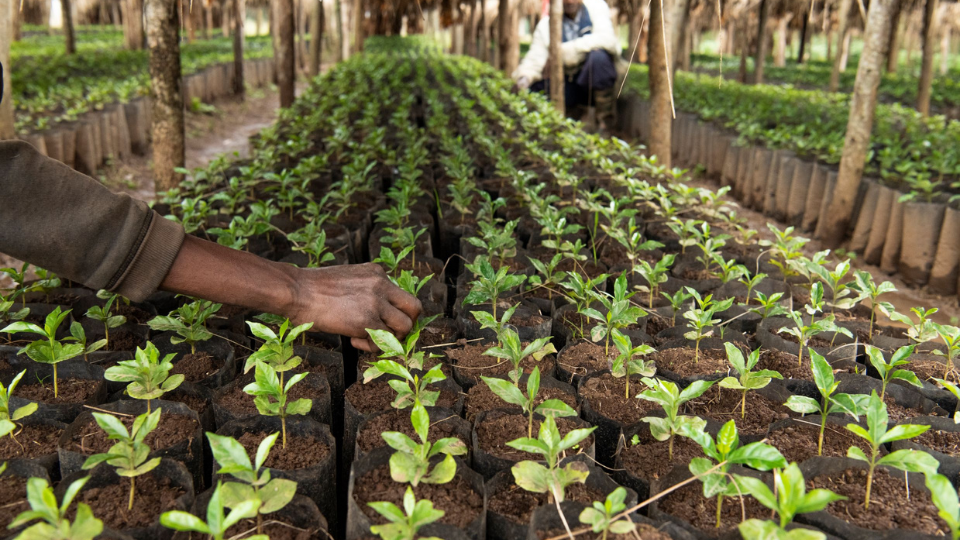
A worker at a coffee tree nursery at the Homacho Waeno cooperative checks on young coffee trees in Sidama, Ethiopia.
How Does Fair Trade Certified Support ESG Goals?
Fair Trade Certified is a globally recognized sustainable sourcing certification program that ensures products are made according to rigorous Fair Trade standards, promoting sustainable livelihoods, safe working conditions, environmental protection, and strong, transparent supply chains. Our program supports companies’ ESG approaches in several ways: helping businesses directly improve their environmental, social, and governance practices; providing robust data that makes it easy to measure success against ESG goals; and offering alignment between their Fair Trade progress and other sustainability programs and frameworks like the UN’s Sustainable Development Goals and B Corp certification, simplifying ESG management.
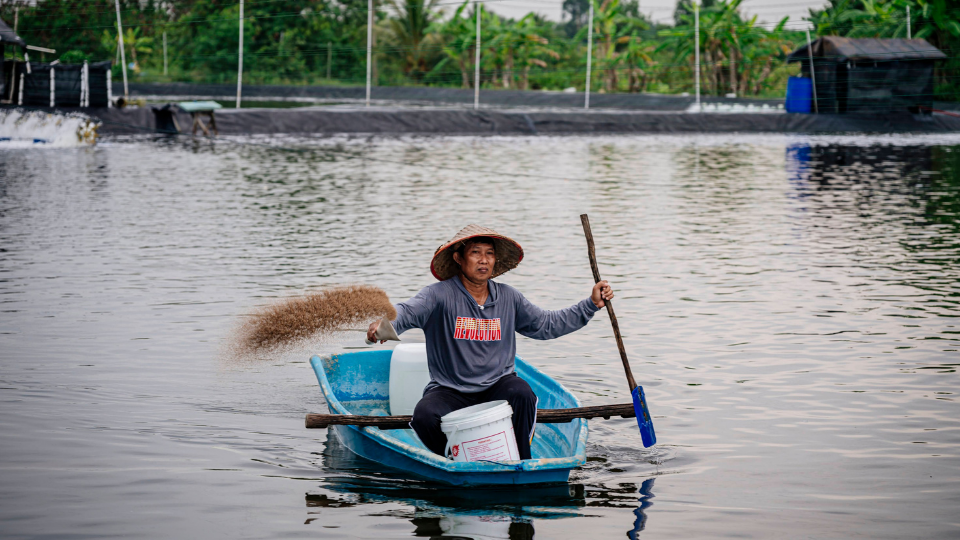
A shrimp farmer feeds the shrimp in his pond in Wahyuni Mandira, Sumatra, Indonesia.
Fair Trade Certified’s Direct Impact on Sustainability Goals
The standards that farms, fishers, and factories must adhere to for Fair Trade Certification provide a ready-made roadmap for ESG practices. Our program helps producers develop legal compliance and management systems while building their capacity to produce sustainably and ethically. Crucially, Fair Trade also provides funds to support communities on their unique sustainability journeys.
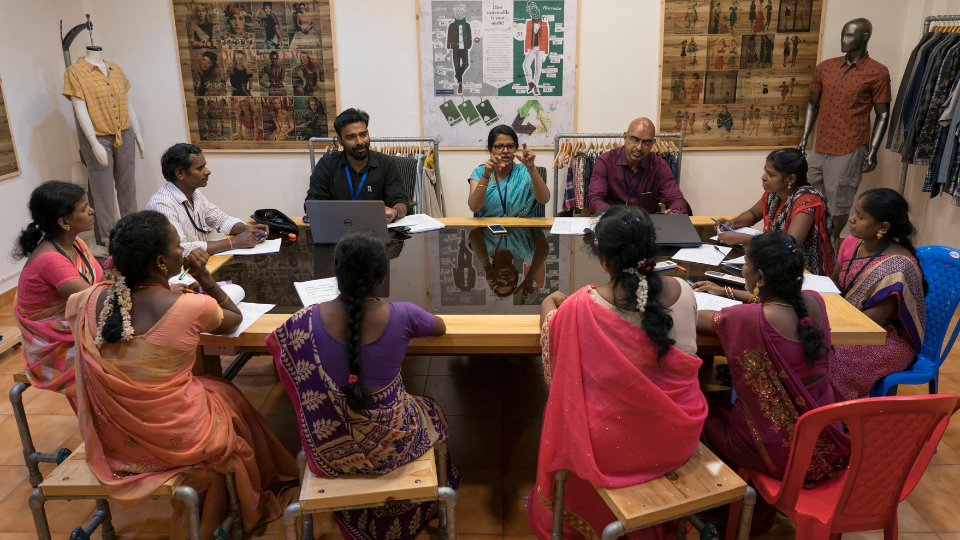
Workers finalize the vote count from Fair Trade Committee election day at a Fair Trade Certified factory in India.
The ‘E’ in ESG
Fair Trade standards include a focus on protecting the environment, with each tailored to the specific risks and realities of different industries. The Agricultural Production Standard prohibits deforestation, limits pesticide use, and promotes biodiversity through agroforestry and intercropping. The Capture Fisheries Standard aims to protect ocean habitats and prevent overfishing. The Factory Production Standard mandates responsible waste management and reduced water usage. And Fair Trade Community Development Funds accelerate this impact. For instance, Al-Karam Textile Mills in Pakistan manged their Community Development Funds to install solar panels and water recycling systems. CKT Apparel in Sri Lanka installed a rainwater harvesting system and achieved carbon neutrality, while continuing to work towards the goal of zero waste. Learn more about these eco-friendly projects.
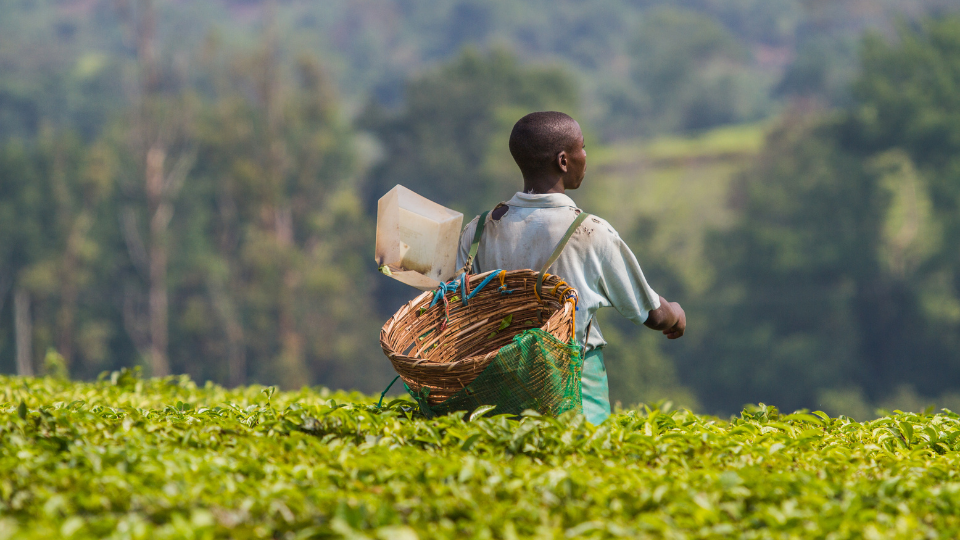
A worker at a Fair Trade Certified tea estate deposits harvested tea leaves and buds into a basket on his back.
The ‘S’ in ESG
Social sustainability is the core of the Fair Trade Certified program, with rigorous standards to protect and empower the people at the heart of our global supply chains. These standards require safe working conditions, more sustainable incomes, and structured workforce engagement on critical issues such as working hours and benefits. They also safeguard against forced labor, child labor, and poverty. Additionally, the self-directed Community Development Funds go directly towards initiatives that workers, producers, and their communities identify as vital. This results in financing of projects like new schools and healthcare facilities. For example, cocoa farmers in the Ivory Coast used funds to build a maternity ward, a water pump, and a school for their village.
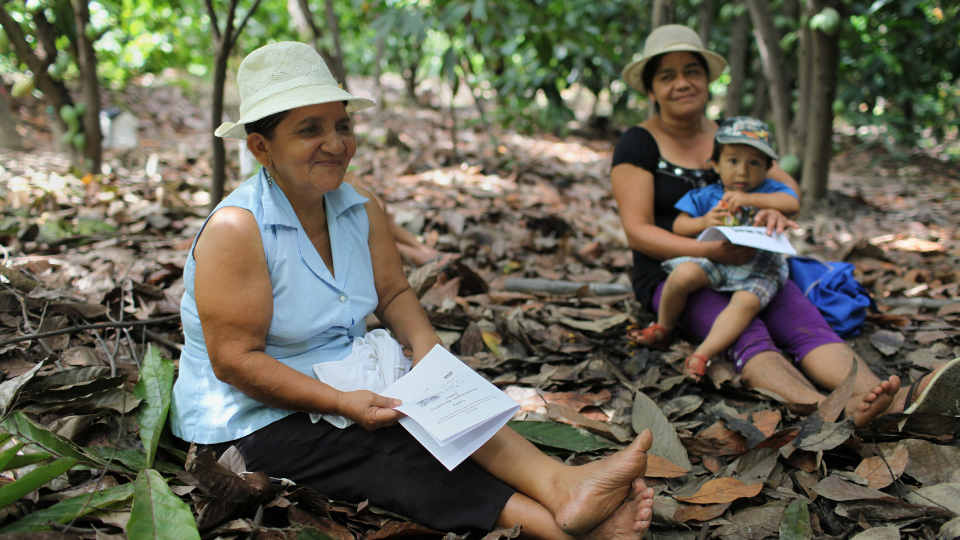
Women sit under cacao trees where a gender equality workshop is held at a Fair Trade Certified cooperative in Peru.
The ‘G’ in ESG
Fair Trade Certified supports the governance pillar of ESG by promoting supply chain transparency through third-party certification and detailed auditing. This process fosters trust and accountability in businesses’ ESG achievements. Our program also helps producers develop robust internal management system to monitor their own social and environmental performance, identify risks, and maintain compliance with Fair Trade standards. This approach adds a critical layer of accountability beyond audits alone.
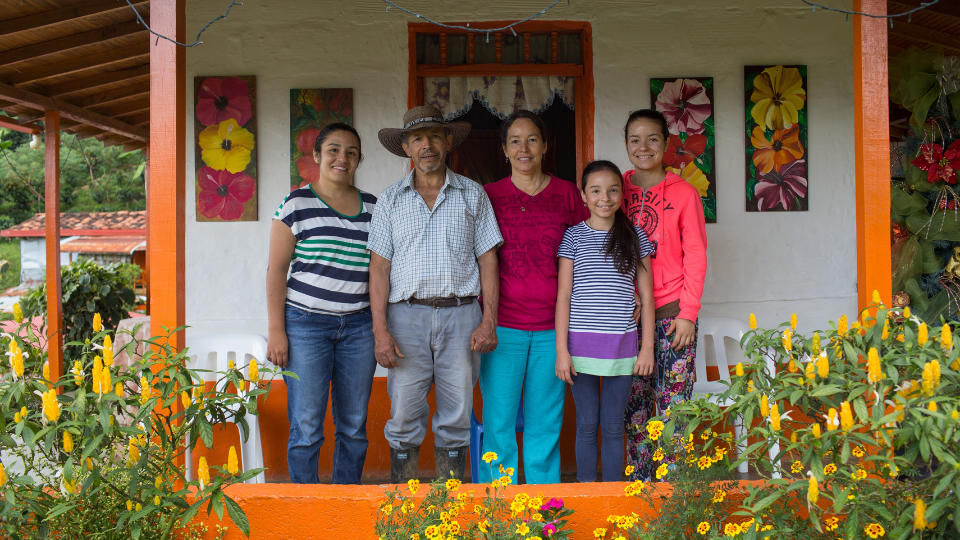
A third-generation coffee-producer from Colombia stands in front of his home with his family.
Leveraging Fair Trade Data and Aligning with Other Sustainability Programs
It can be daunting to sift through the myriad of frameworks, programs, and certifications in the ESG landscape. Fair Trade Certified is a powerful tool for aligning efforts across multiple sustainability programs. It directly contributes to six UN Sustainable Development Goals (SDGs): no poverty, gender equality, clean water and sanitation, decent work and economic growth, responsible consumption and production, and life below water.
Fair Trade Certified enhances cross-program ESG alignment by helping companies leverage extensive data to track and measure their sustainability goals. The program tracks KPIs measuring performance on topics like fair wages, safe working conditions, and environmental stewardship. This comprehensive data set allows companies to streamline their compliance with initiatives like B Corp certification and offers a wealth of credible information to share with customers, partners, and shareholders when reporting progress and celebrating ESG achievements.
Payments made toward the Fair Trade Certified program, including licensing fees, certification fees, and Fair Trade Premiums, can be also be counted toward companies 1% for the Planet commitments.
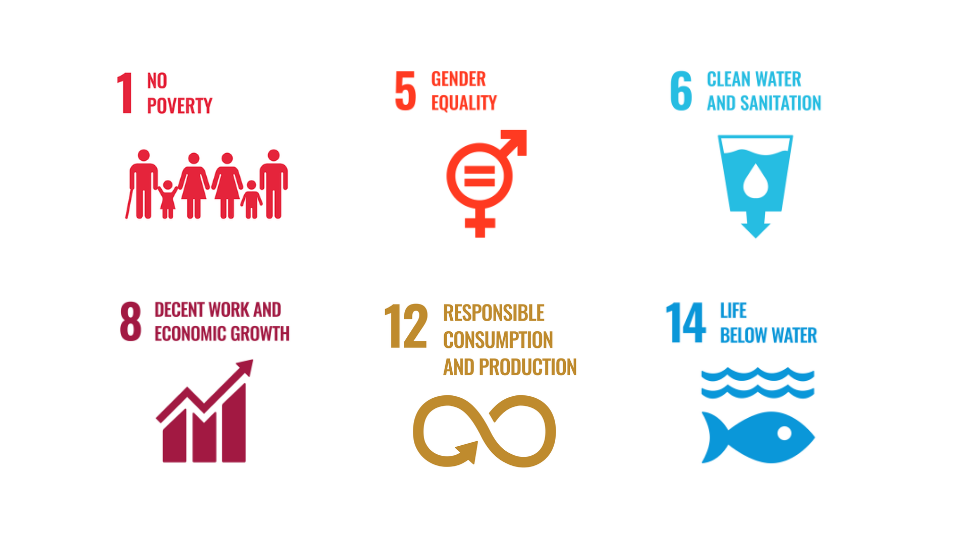
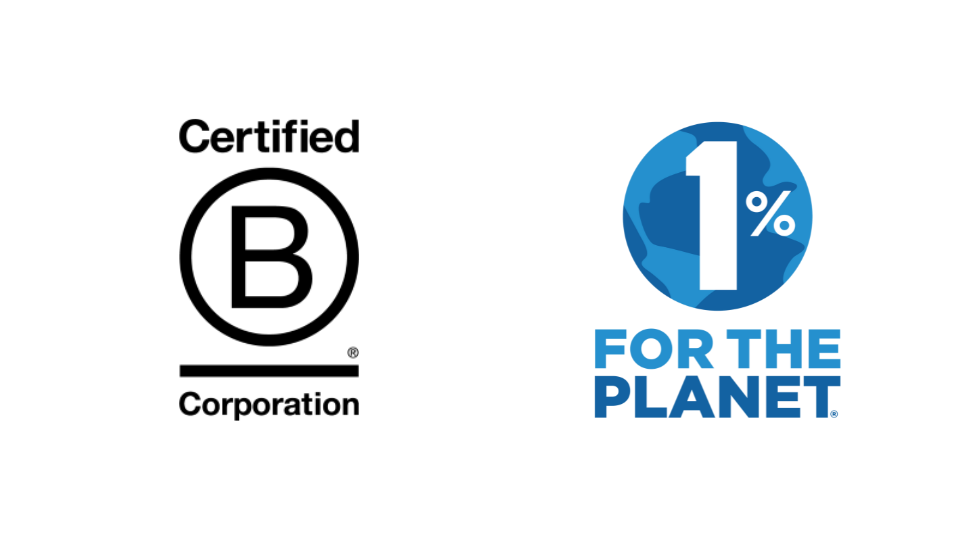
Success Stories: Brands Leveraging Fair Trade Certified for ESG
Here are just a few of the many ways that brands across industries are leveraging data from the Fair Trade Certified program to measure and share ESG progress:
Kroger pledged to use 100% Fair Trade Certified coffee in its Simple Truth® and Private Selection® brands, achieving this goal 2023 and linking the milestone with four UN SDGs: zero hunger, decent work, responsible consumption and production, and life on land.
Kroger also sources other Fair Trade Certified ingredients, including coconut. Watch the video below to learn how this fits into their sustainable sourcing approach.
e.l.f. Beauty partnered with us to create and implement an innovative new framework extending Fair Trade Certification to beauty industry facilities. The company achieved its aspiration to source 75% of their products (700+ SKUs) in Fair Trade Certified facilities.
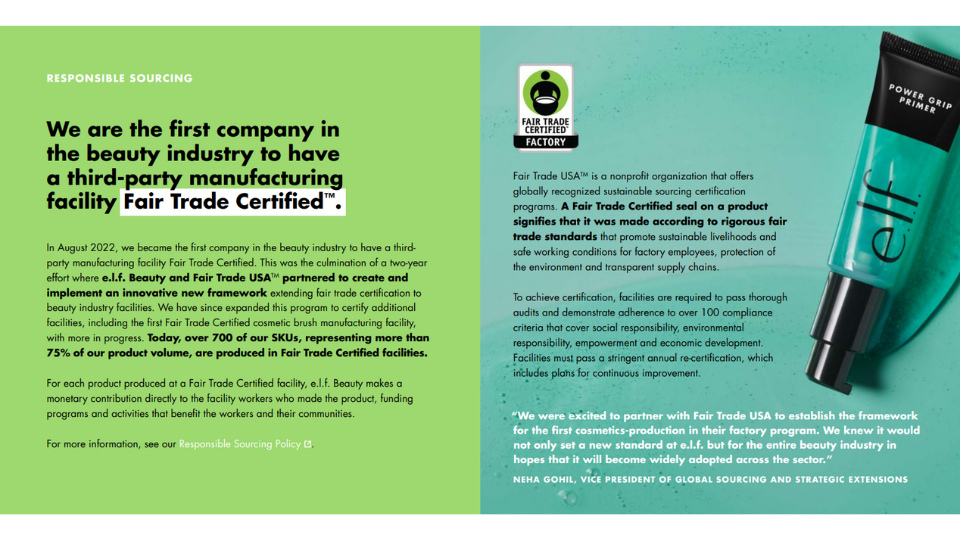
Fair Trade Certified factory sourcing commitments detailed on page 36 of e.l.f. Beauty’s 2023 Impact Report.
NatureSweet committed to grow 100% of its branded snacking tomato products as Fair Trade Certified.
J.Crew set a goal to source 90% of their cashmere and chino from Fair Trade Certified factories; its 2023 ESG report indicated the company achieved 22% progress and is on track to meet its goal by 2025.
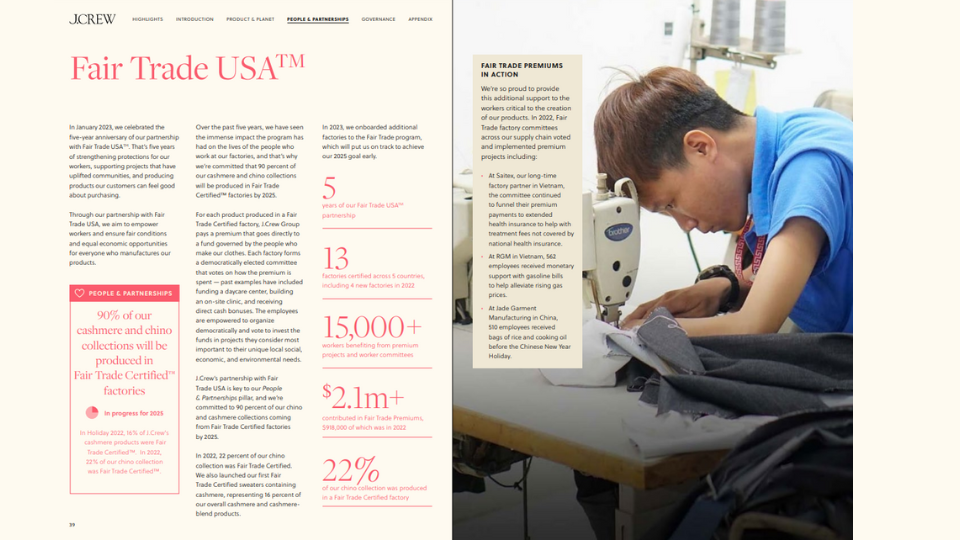
J.Crew shares Fair Trade milestones on page 39 in its Impact Report.
Amazon includes Fair Trade Certified products in its Climate Pledge Friendly program, which helps shoppers find more sustainable products. Fair Trade USA™ has access to real-time product data from Amazon, offering valuable insights for partners. One of our brand partners achieved a 5% sales lift as a direct result of their product’s Climate Pledge Friendly status on Amazon!
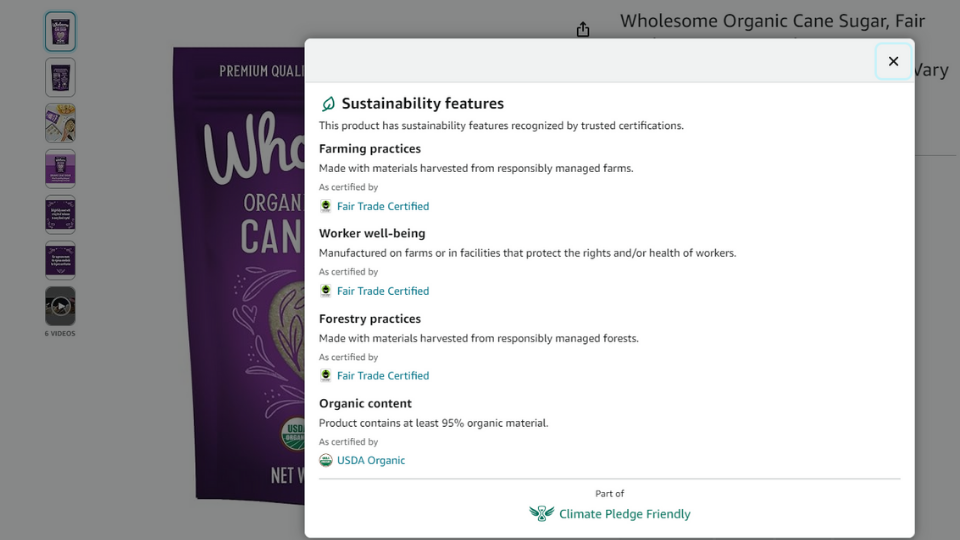
Amazon’s Climate Pledge Friendly program makes it easy for customers to see sustainability features when browsing products. Shop Fair Trade Certified products on Amazon!
REI highlights its partnership with Fair Trade Certified on the company’s website and celebrates a cumulative total of $1.6 million in Community Development Funds generated through its purchases since 2016.
These companies, along with many others like Grocery Co-op, Keurig Dr. Pepper,Wholesum,Boll & Branch,Tony’s Coffee, and Williams-Sonoma, prominently feature Fair Trade achievements in annual ESG and sustainability impact reports.
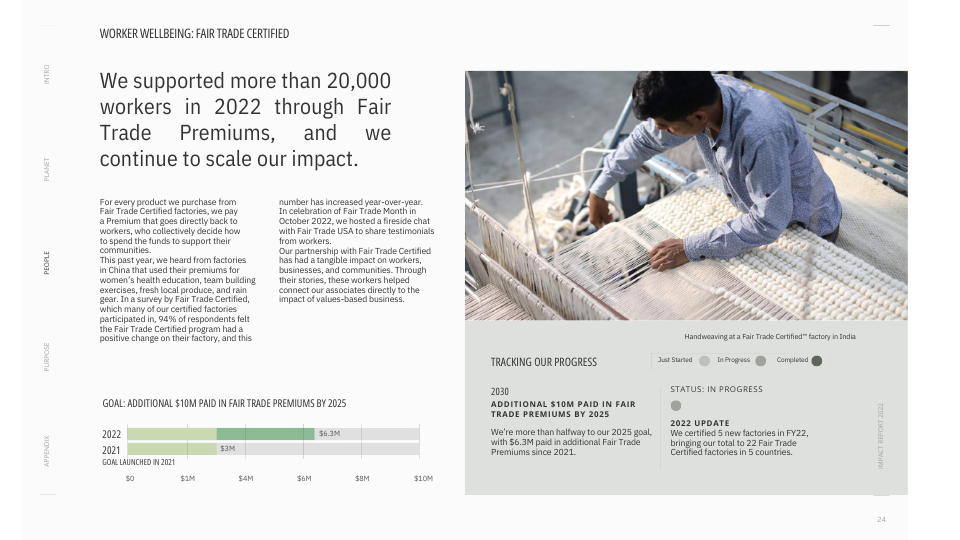
Williams-Sonoma’s Impact Report outlines the impact of its Fair Trade Certified program on page 25.
Fair Trade Certified: The Foundation of your ESG Approach
For companies aiming to deepen their commitment to sustainable and ethical practice with meaningful ESG goals, Fair Trade Certified can serve as a ready-made cornerstone. Our program provides measurable benefits throughout the supply chain and a framework to track progress, measure success, manage risks, and demonstrate transparency and accountability. It also aligns seamlessly with other sustainability programs and frameworks.
Join more than 1,500 companies that are transforming their businesses, and creating a better world for planet and people, with Fair Trade Certified. Get started today!

A floral worker selects and packs Fair Trade Certified roses at a floral farm in Ecuador.